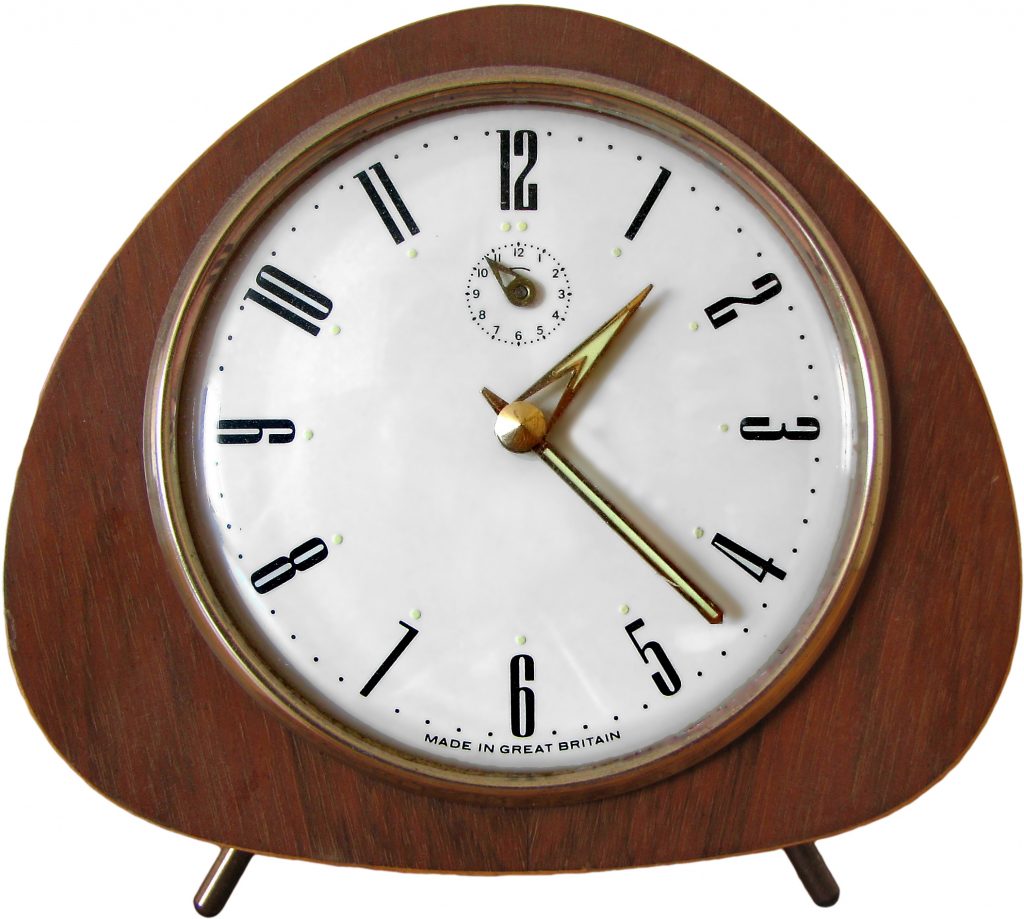 In the aftermath of suffering injuries from medical malpractice, filing a suit might not be at the top of your list. However, in order to maximize your chance of recovery, it is imperative that you timely file your claim without delay. So what happens when you do not file a suit quickly enough?
In the aftermath of suffering injuries from medical malpractice, filing a suit might not be at the top of your list. However, in order to maximize your chance of recovery, it is imperative that you timely file your claim without delay. So what happens when you do not file a suit quickly enough?
Brian Snavely was a patient of Dr. Rice and her affiliated entities. Snavely sought care from Dr. Rice for chronic pain that started with an industrial accident in 1999. That care included being prescribed narcotics. In 2010, Snavely was involved with an automobile accident with Kayse Vincent. Following this accident, Snavely received further treatment from Dr. Rice. While Snavely was seeking damages against Vincent for that accident, he died of a drug overdose. The plaintiff, Linda Snavely, was Brian Snavely’s mother. Ms. Snavely first filed a Request to Convene a Medical Review Panel, which is an initial malpractice hearing against qualified healthcare providers, against Dr. Rice and her entities under the Louisiana Medical Malpractice Act (LMMA), La.R.S. 40:1299.41-.49. Dr. Rice, as a licensed physician, could be subjected to a Medical Review Panel. However, her affiliated entities could not be. Dr. Rice responded to the Request to Convene a Medical Review Panel by filing an Exception of Prescription, which is a pleading seeking delay or dismissal of a lawsuit or other action because the time period to bring that action has expired. The exception and dismissal were subsequently granted. Ms. Snavely then sought damages against Dr. Rice’s entities as she alleged their treatment led to Brian’s death. The Rice entities filed an Exception of Prescription and it too was granted.
The exception of prescription is laid out in La. C.C.P. art. 927. The burden of proof lies on the requesting party. When Appeals Courts review it, they use a manifest error standard of review, which means no deference is given to lower courts. The time limit for filing claims is one year; which means an Exception of Prescription is proper if a lawsuit or other action is filed after one year. La. R.S. 9:5628(A). However, that rule is only valid from when damages are immediately apparent. See In re Medical Review Panel for Claim of Moses, 788 So.2d 1173, 1178 (La. 2001).
 Louisiana Personal Injury Lawyer Blog
Louisiana Personal Injury Lawyer Blog


 If you believe you are eligible for retirement, disability, or other benefits from the Social Security Administration (“SSA”), it is imperative that you understand how prior events, including those that may have led to overpayment of prior benefits, can affect your ability to collect these benefits.
If you believe you are eligible for retirement, disability, or other benefits from the Social Security Administration (“SSA”), it is imperative that you understand how prior events, including those that may have led to overpayment of prior benefits, can affect your ability to collect these benefits.  Summary judgment is a legal standard many courts use when there are not enough facts in dispute to even proceed with a lawsuit. When applicable, this is a good strategy for a defense attorney to use because it purges claims that have no merit, saving time and money. The Fifth Circuit Court of Appeal demonstrated this principle within the context of an employment discrimination lawsuit. The following case demonstrates how an employer can use the Courts to deny a Family Medical Leave Act Claim.
Summary judgment is a legal standard many courts use when there are not enough facts in dispute to even proceed with a lawsuit. When applicable, this is a good strategy for a defense attorney to use because it purges claims that have no merit, saving time and money. The Fifth Circuit Court of Appeal demonstrated this principle within the context of an employment discrimination lawsuit. The following case demonstrates how an employer can use the Courts to deny a Family Medical Leave Act Claim. Final judgments are usually final. However, not all civil judgments are actually final. In a legal malpractice lawsuit, the plaintiff can attempt to seek relief from a final judgment. However, this remedy is only available under a narrow set of circumstances where the losing party may request the court to reopen an otherwise final judgment.
Final judgments are usually final. However, not all civil judgments are actually final. In a legal malpractice lawsuit, the plaintiff can attempt to seek relief from a final judgment. However, this remedy is only available under a narrow set of circumstances where the losing party may request the court to reopen an otherwise final judgment. When someone reports misconduct, they might expect the wrongdoer to be reprimanded. They don’t generally expect to be punished themselves. That’s why Ronald Bias at Amite High School was not happy when he was retaliated against after reporting a colleague’s misconduct.
When someone reports misconduct, they might expect the wrongdoer to be reprimanded. They don’t generally expect to be punished themselves. That’s why Ronald Bias at Amite High School was not happy when he was retaliated against after reporting a colleague’s misconduct.  Generally, citizens are not held to criminal standards that do not yet exist. When a citizen takes action, he or she is held to the criminal standards in place at the time of the act. To retroactively apply criminal laws is impermissible because that application tends to violate principles of fairness and due process.
Generally, citizens are not held to criminal standards that do not yet exist. When a citizen takes action, he or she is held to the criminal standards in place at the time of the act. To retroactively apply criminal laws is impermissible because that application tends to violate principles of fairness and due process. A common litigation tactic for plaintiffs is to bring cases in federal court to obtain greater damage awards. However, a plaintiff must have a viable claim under federal law or their case will be dismissed by the federal district court for lack of jurisdiction.
A common litigation tactic for plaintiffs is to bring cases in federal court to obtain greater damage awards. However, a plaintiff must have a viable claim under federal law or their case will be dismissed by the federal district court for lack of jurisdiction. Louisiana citizens interact with contract law every day, in many cases without even realizing it. Whether buying groceries at a supermarket with a credit card or installing a new iPhone app, countless purchases are governed by consumer agreements. What may be even less known to purchasers is that many of these agreements include an arbitration clause, which provides that any disputes arising out of that agreement must be handled by an arbitrator rather than a court. Arbitration is a form of “alternative dispute resolution” in which an arbitrator — typically a certified attorney — evaluates the parties’ claims and renders a binding decision as to who should prevail. In general, companies prefer arbitration because it costs less than litigation. But because the rules of arbitration can vary significantly from the rules of court, the consumer does not always benefit from being kept away from the courthouse. The validity of arbitration clauses is a common point of contention. Although Louisiana generally favors arbitration, the legislature has enacted the Louisiana Arbitration Act (“LLA”) (
Louisiana citizens interact with contract law every day, in many cases without even realizing it. Whether buying groceries at a supermarket with a credit card or installing a new iPhone app, countless purchases are governed by consumer agreements. What may be even less known to purchasers is that many of these agreements include an arbitration clause, which provides that any disputes arising out of that agreement must be handled by an arbitrator rather than a court. Arbitration is a form of “alternative dispute resolution” in which an arbitrator — typically a certified attorney — evaluates the parties’ claims and renders a binding decision as to who should prevail. In general, companies prefer arbitration because it costs less than litigation. But because the rules of arbitration can vary significantly from the rules of court, the consumer does not always benefit from being kept away from the courthouse. The validity of arbitration clauses is a common point of contention. Although Louisiana generally favors arbitration, the legislature has enacted the Louisiana Arbitration Act (“LLA”) ( After an injury, it is natural to feel entitled to physical, mental, and financial recovery. Unfortunately, the road to recovery can be full of detours and roadblocks. Without the help of a good lawyer, it can be difficult, and perhaps impossible, to understand and adhere to the many rules of the legal system. What seems like an unfair technicality could be the result of an easily avoidable mistake.
After an injury, it is natural to feel entitled to physical, mental, and financial recovery. Unfortunately, the road to recovery can be full of detours and roadblocks. Without the help of a good lawyer, it can be difficult, and perhaps impossible, to understand and adhere to the many rules of the legal system. What seems like an unfair technicality could be the result of an easily avoidable mistake.  A non-compete clause is a common feature in many employment agreements in Louisiana. The clause is a way for an employer to restrict an employee from going to work for a competitor and thus potentially harming the original employer. Most non-compete clauses, in order to be enforceable, must contain some limitation as to time and geographical location.
A non-compete clause is a common feature in many employment agreements in Louisiana. The clause is a way for an employer to restrict an employee from going to work for a competitor and thus potentially harming the original employer. Most non-compete clauses, in order to be enforceable, must contain some limitation as to time and geographical location.